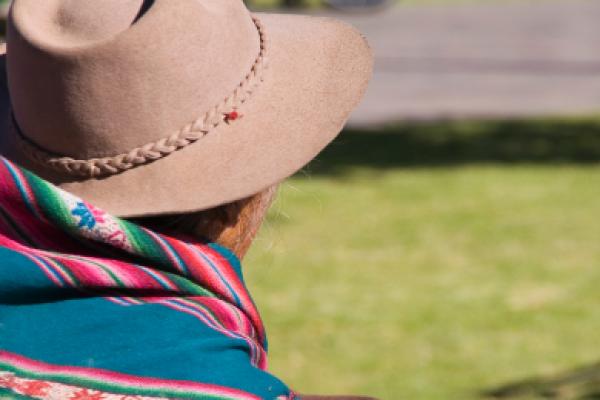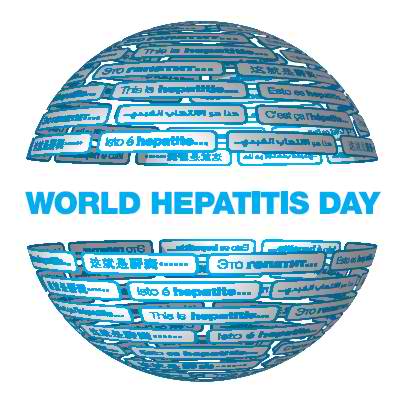guest |
August 14th, 2012
Laylat al-Qadr is also known as the Night of Power or the Night of Destiny.

Night of a Thousand Months
It is a very important night in the Muslim calendar as it is said to be the night Allah revealed the first verses of the Quran to prophet Muhammad. Muhammad received the first revelations through the Archangel Gabriel. The revelations continued for two decades throughout Muhammad’s life and together they came to form the Quran. Fittingly, the word Quran, in English, means ‘recitation.’
There is some controversy over the exact date for Laylat al-Qadr but the night is usually celebrated on the 27th of Ramadan. The last ten days of Ramadan are most important and it is likely that the true night for Lailat al-Qadr falls on any of the odd nights. During the last ten days charity work is likely to increase among Muslims. People want to make sure they have given enough during the holy month.
This night marks the beginning of Muhammad’s mission, and Muslims, therefore, regard it as the most important night in history. The Quran says that this night is better than a thousand months (that’s 83.3 years in modern terms)…
Read more.. »
guest |
August 12th, 2012
Today is International Youth Day!

Young people are the generation of change.
The age group which the United Nations defines as youth, 15-25 –year-olds, makes up for one sixth of the world’s population, the largest youth generation the world has ever known. Young people worldwide face high rates of unemployment, vulnerable working conditions, and marginalization from decision-making processes. 85% of the world’s youth live in developing countries. The main purpose of International Youth Day is the promote the rights and abilities of young people around the world.
1985 was the first International Year of Youth. Ten years later, in 1995, the United Nations adopted an official set of policy guidelines, World Programme of Action for Youth, for nations and NGOs to improve the living, working, and social conditions of youth.
Read more.. »
guest |
August 10th, 2012
Janmashtami is an important day in the Hindu calendar because it marks the birth of Krishna, one of the most popular Hindu gods.

Dahi Handi
Most Hindus believe that Krishna is the avatar, or incarnation, of Vishnu, one of the five primary forms of God. Vishnu is the preserver and protector of the universe. Vishnu usually appears in a human body, with blue-coloured skin and four arms. Krishna, on the other hand, has a variety of forms. Most popular forms are Krishna as a blue god-child, as a divine hero, or as a model lover.
Krishna is always the centre of Janmashatami, but the day is celebrated differently across India. Around Mumbai, in the state of Maharashtra, it’s common to celebrate with a sport called Dahi Handi. In Dahi Handi, a handi, a clay pot filled with buttermilk, is first hung to a high location. A group of men then forms a human pyramid beneath the handi, and the topmost person in the pyramid tries to break the claypot. As buttermilk from the broken handi drips down the human pyramid it symbolizes unity.
Read more.. »
The International Day for the World’s Indigenous People was first proclaimed in 1994 by the United Nations.

25% of Ecuador's population is indigenous. Their history encompasses the last 11,000 years.
In 2007, the General Assembly adopted the Declaration On The Rights Of Indigenous People. At first, Australia, New Zealand, United States, and Canada all voted against the declaration but they have all reversed their positions since.
The International Day for the World’s Indigenous People is important because in our increasingly globalized, technology-driven world indigenous people are often forgotten. This year’s theme is “Indigenous media, empowering indigenous voices.” The day aims to encourage more and more indigenous people around the world to promote and spread their culture, language, and values through traditional and new media forms…
Read more.. »
Taking place during the Hindu month of Sravana (13th August 2011),
Raksha Bandhan is a very beautiful and important festival. It celebrates brotherhood and love, promoting harmonious coexistence between all. It is mainly celebrated in Northern India. Raksha Bandhan is a significant event in the Hindu Calendar and the importance of the brother-sister relationship is emphasised throughout.
Read more.. »
Tisha b’Av is the day when those of the Jewish faith remember and
commemorate the many tragedies that have befallen them, throughout history, on the 9th day of the month of Av in the Jewish Lunar Calendar. This year it takes place on the 28th of July. It is a very sad day in the Jewish calendar. As is customary in Jewish tradition, fasting denotes a sign of mourning and as such Jews fast on this day.
Read more.. »
“It is closer than you think” is the theme for this year’s World Hepatitis Day.

World Hepatitis Day
The day was first launched in 2008 by World Hepatitis Alliance with the purpose to increase awareness and understanding of viral hepatitis. There are approximately 240 million people chronically infected with hepatitis B, and 150 million people chronically infected with hepatitis C in the world today. Hepatitis causes inflammation of the liver which leads to cirrhosis and liver cancer.
This year’s theme was chosen to highlight the fact that, around the world, hepatitis is still unknown, undiagnosed, and untreated. This July, the World Hepatitis Alliance is attempting a world record by having the most people performing the “see no evil, hear no evil, speak no evil” actions in 24 hours at multiple venues around the world.
Read more.. »
When I first arrived in London, in 2009, the BT tower was counting days to the Olympics. The countdown was slowly moving down from the 900s. Now, the moment is only a day away! The Olympic Games 2012 open tomorrow.
Over the past few months London has had mixed feelings about the games. Some Londoners deeply resent them and have long ago made plans to escape the city, others grumble about the traffic the games will bring but are secretly excited, and the rest have been counting days with the BT tower and are warmly welcoming the event.
To get an idea of the enormity of the games, watch the BBC animation on Olympics people in numbers, or the more general Guardian animation on Olympics in numbers. You’ll learn that this is the third time London is hosting the Olympics, and 203 countries are participating this year. The global audience to watch the opening ceremony tomorrow evening is estimated to be around 4 billion people. That’s 60% of the world’s population.
Read more.. »
“What counts in life is not the mere fact that we have lived. It is what difference we have made to the lives of others that will determine the significance of the life we lead.”
– Nelson Mandela

Mandela fought for freedom, peace, and equality.
Today is the fourth year the world celebrates Nelson Mandela Day. On the 90th birthday celebration of Mandela, in Hyde Park in 2008, the UN and the Nelson Mandela Foundation decided that this day should be an annual day to celebrate the life and work of Mandela and of a culture of freedom and peace. The basic idea behind the day is simple: The United Nations calls everyone to give 67 minutes of their day for advocating human rights, whether it means supporting your chosen charity or serving your local community. The 67 minutes are based on the 67 years Nelson Mandela gave of his life fighting for conflict resolution, democracy, human rights, peace, and reconciliation.
Mandela was born in South Africa, in 1918. He became one of the most well-known anti-apartheid activists, and was imprisoned in 1964 for his views. He spent more than 27 years in prison, during which the political climate of South Africa stormed but essentially stayed unchanged. Straight after his release in 1990, Mandela plunged into his life’s work, and in 1991 was elected the first black president of South Africa. In 1993, he was awarded with the Nobel Peace Prize.
Read more.. »
Today is World Population Day.

The world's population is over 7 billion people.
In the year 1810 the world had one billion people. Today, in 2012, the world is a home to more than seven billion people. July 11th was declared as the World Population Day in 1989 as a response to population issues, such as growth, food shortage, and the right to plan a family.
This year’s theme is Universal Access to Reproductive Health Services. The United Nations Population Fund Website (UNFPA) presents the theme well in the following slogan: “Delivering a world where every pregnancy is wanted, every childbirth is safe, and every young person’s potential is fulfilled.” The slogan illustrates how population issues are not just about the number of births, but that factors such as the human right to plan a family, the mother’s health and wellbeing, and the quality of the baby’s future upbringing must also be recognized.
According to the UNFPA website, there are 222 million women every year who would like to avoid or delay pregnancy but lack access to reproductive health services. In addition, 800 women die every day in the process of giving birth, and every year 1.8 billion adolescents grow up without the knowledge or services that they need in order to protect themselves.
These facts are shocking and instead of the business-political side they highlight the human side of population growth.
There are several lectures, talks, plays, conferences, and films viewings going on in various cities today. For events that are going on in London click here.
Also in July:
Dharma Day – July 3rd












 Hello, I'm Deborah Swallow and, for the last fifteen years, I've worked in over thirty countries addressing the complexities of people working internationally across multiple cultures, so individuals and organisations alike can gain an authentic competitive edge and win in international markets.
Hello, I'm Deborah Swallow and, for the last fifteen years, I've worked in over thirty countries addressing the complexities of people working internationally across multiple cultures, so individuals and organisations alike can gain an authentic competitive edge and win in international markets. 